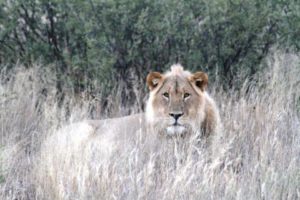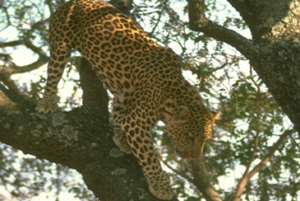SCI Foundation is a 501(c)(3) nonprofit organization that funds and directs worldwide programs dedicated to wildlife conservation and outdoor education. SCI Foundation ensures that the best available science is used in wildlife policy and management and demonstrates the constructive role that hunting and hunters play in the conservation of biodiversity around the world. The organization is First For Wildlife, investing millions of dollars into wildlife conservation and education every year.
The Conservation Department at SCI Foundation partners with academic institutions, community-based support organizations, and conservation non-governmental organizations to complete wildlife research and management projects all over the world. Since 2000, we have put over $70 million in hunter dollars to work on over 100 conservation projects in 30 countries. Some of our programs include:
- North America: SCI Foundation is a strong supporter of the North American Model of Wildlife Management and firmly believes that the hunter-conservationist is the key to future conservation efforts in North America. We have supported projects in 23 states and provinces involving a range of species. Recent foci have been on the interactions between hunted species and expanding predator populations, grizzly and black bear populations, and declining mule deer populations in the West and white-tailed deer in the upper Midwest.
- Africa: SCI Foundation has a long history of success in Africa. We work to support African states in managing their wildlife resources sustainably for the long-term benefit of their land, their people, and wildlife communities. We are currently supporting research to identify the most accurate and efficient methods to survey African lions and leopards so that these iconic species will continue to be conserved through sustainable use.
- Asia: Many central Asian countries are in the early stages of developing a sustainable use conservation model, but SCI Foundation has been present with our partners in the region since 2010. We support building capacity for local community-based conservation throughout the region, including projects in Kazakhstan, Pakistan, and Tajikistan.
- Antipoaching: Illegal harvest for meat or body parts is a primary threat to many wildlife species worldwide, especially rhinoceros and elephant in Africa. SCI Foundation has supported antipoaching efforts all over the world through grants, partnerships, and capacity-building efforts.
- Matching Grants: The SCI Foundation supports SCI Chapters in their efforts to contribute toward conservation projects in their local areas. If a Chapter supports a research or management project, they can apply for matching funds from the Foundation to increase their impact. In 2018, the Foundation contributed over $30,000 to local conservation efforts through matching grants to the chapters.
The annual African Wildlife Consultative Forum (AWCF) is SCI Foundation's premier activity in Africa, bringing together a diverse group of international stakeholders, senior government delegates, professional hunting associations, policy experts and wildlife biologists. Discussions at this forum center on African wildlife issues and coordinating responses to current events.
Project Updates
Africa
Asia
North America

Featured Articles
Recent Conservation Articles
Judge Grants Safari Club International And The National Rifle Association’s Motions To Intervene In Lawsuits Challenging Gray Wolf Delisting
This week, a federal court in California granted Safari Club International (SCI) and the National Rifle Association’s (NRA) motions to intervene in three lawsuits challenging the removal of gray wolves from the US Endangered Species Act (ESA) lists. The delisting of gray wolves, in response to population recovery, lifts management
Read MoreSCI President Scott Chapman Restates SCI Captive Bred Lion Policy
At the beginning of this month, SCI President Scott Chapman sent a letter to all SCI chapter presidents reminding them of SCI’s policy regarding captive bred lion hunts. This policy was adopted by the Board in February 2018. The policy makes clear that SCI opposes the hunting of African lions
Read MoreZambian Director of National Parks and Wildlife Appeals to Connecticut Legislators: Import Ban Will Hurt, Not Save, Wildlife
Editor’s Note: In previous a news post, we inform members about the current effort in the State of Connecticut to ban the importation of hunting trophies of various African species. Among the voices from Africa raised against this effort is that of Zambia’s director of the Department of National Parks
Read MoreSafari Club International Applauds Rep. Westerman for Introducing the Bipartisan Trillion Trees Act
Safari Club International (SCI) is proud to support the introduction of the Trillion Trees Act (TTA) by House Natural Resource Committee Ranking Member Bruce Westerman (R-AR-04). This bipartisan bill, if made law, will help remove significant amounts of carbon from the atmosphere by restoring and growing more than one trillion
Read MoreIUCN Says Support for Proven Elephant Management is Critical to Species’ Conservation in New Red List Assessment
Last week, the International Union for Conservation of Nature (IUCN) released an update to its Red List assessment of African elephant, concluding that the species suffered a significant population reduction between the 1970s and 2016. But the IUCN acknowledged that the decline is not uniform across the elephant’s range, and
Read MoreBill Will Empower State Wildlife Scientists in Grizzly Bear Management
United States Senator Cynthia Lummis (R-WY) has introduced Senate Bill 973, the Grizzly Bear State Management Act of 2021. The bill would remove grizzly bears in the Greater Yellowstone Ecosystem (GYE) from the US Endangered Species List and put their management in the hands of state wildlife scientists and managers.
Read More






